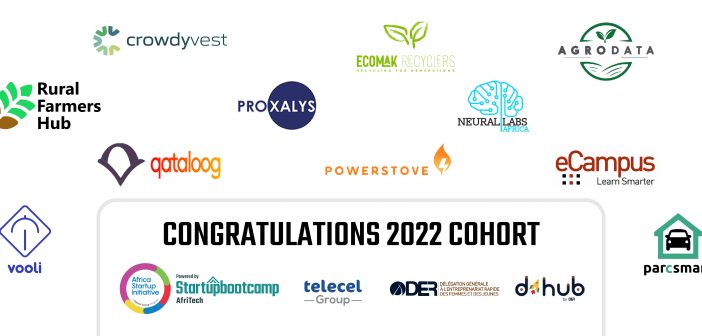5 Hottest EdTech Companies in Africa

Africa has a growing economy with a large and vibrant population. Consequently, innovative EdTech founders of African descent are not leaving any stone unturned to create platforms that promote a customized learning experience for users.
Distance is no longer a barrier. More so, students can now learn at their own pace.
The Covid-19 pandemic contributed to the rapid growth of e-learning startups in Africa and other parts of the world. However, it’s yet to attract large volumes of funding, unlike some sectors. Low internet coverage also remains a major challenge in several African countries.
Without much ado, let’s check out some of the hottest EdTech companies in Africa right now.
1. uLessons
uLessons is an EdTech platform that was founded by Sim Shagaya, a Nigerian serial founder in 2019. It offers Primary, Junior, and Senior Secondary School students a holistic learning experience. The platform also prepares them for WASSCE, JAMB, NECO, and GCE.
Regarding funding, it raised $7.5 million in a Series A round in January 2021. The startup also secured $15M in a Series B funding round for expansion later in December that same year.
Upon inception, it offered a product pack of SD cards and dongles with pre-recorded videos. It has now evolved with new features to make learning more engaging and unveiled its offline centres in August 2020.
Several schools have embraced this EdTech startup during and after the pandemic saga. It is available in countries like Uganda, Kenya, Ghana, South Africa, Sierra Leone, Liberia, Gambia, the UK, and the US. 85% of its users are Nigeria-based.
uLessons is pioneering online home tutoring business in Africa. STEM topics dominate the platform, and around 50% of its users often access courses via their smartphones. The mobile app has over 2 million downloads.
2. Kidato
Kidato is an online school designed for K-12 students and was founded in 2020 by Sam Gichuru. This Kenyan e-learning startup was accepted into the Y-combinator accelerator in March 2021 and bagged US$125, 000 in seed funding with investment opportunities. It also raised a $1.4M seed in the following month.
It now has over 2000 students enrolled for academic and after-school classes compared to the 30 students who registered during the first two semesters.
A significant percentage of public schools in Africa face the issue of overcrowding. Sam Gichuru had to resort to homeschooling his kids because he couldn’t afford the expensive private school tuition.
Things took another turn during the pandemic, so he had to look for a viable option. This inspired him to launch Kidato. The startup focuses on bridging the curriculum and student-teacher ratio gap in Africa and offering an affordable alternative to private schools.
According to Sam, the platform is growing at a 100% quarter-on-quarter, and the goal is to ensure better learning outcomes in personalized class sizes in an engaging way.
3. Gradely
Founded by Boye Oshnaga in 2019, Gradely is an AI-driven personalized learning platform for K–12 students. One of the goals of this startup is to change how parents gain feedback on their kids’ academic performance.
It offers learning resources in a video lesson format with assessment tasks. Internet connectivity is a major issue affecting how parents and students adopt EdTech in Africa. Nevertheless, Gradely is combating this issue by rolling out features that can help users conserve data.
As of February 2021, it’s supporting 5,000 parents and 200 schools based on a monthly sub-model. Even though it’s only available in Nigeria for now, the founder has plans to penetrate other African countries.
Driven by a vision to enhance learning outcomes for 20 million students by 2030, Gradely is Nigeria’s first personalized learning platform. In 2020, Microtraction, a Nigerian VC firm invested $25,000 into it.
4. The Student Hub
The Student Hub relies on a 100% online distance learning model and a blended learning model. It offers fully accredited ND programs for South Africans at an affordable cost.
The platform also features an integrated skills marketplace and tools for tutors to track students’ performance. Students can also access crowdfunding tools to get financing or sponsorship opportunities.
Founded by Hertzy Kabeta in 2015, the goal of this e-learning platform is to tackle the issue of unemployment in Africa. It’s not surprising that it keeps partnering with government-accredited technical and vocational education and training colleges to deliver its courses online.
The Student Hub is a smart education company that makes education accessible to the masses, improves the quality of education, and increases the student success rate during their studies and upon graduation. In 2020, Naspers Foundry invested $2.9m into it.
5. Spark Schools
Spark Schools comprise 18 affordable private schools where students learn in traditional classroom settings and innovative learning labs. It also boasts of a personalized learning system and qualified educators.
The platform is the pioneer of Africa’s first blended learning model for primary school students, which often goes a long way to equip them for university and careers.
Spark Schools was founded in 2012 by Stacey Brewer and Ryan Harisson in a bid to disrupt the South African educational system. It relies on a hybrid funding model and has received funding from Pearson Education and Finnfund, to mention a few.
The goal of embracing EdTech in Africa isn’t to completely replace traditional schooling but will rather complement it. Even though the future of this sector looks promising, the common challenges will continue to slow down the adoption rate unless concerned stakeholders intervene.
About the Author

Bola Ikusika is a content developer and the team lead at Scribedge, a content writing agency that helps B2B and B2C brands craft SEO-friendly content.
She’s also the author of Mindset Revamp: Seven Simple Strategies for Crushing the Seeming Giants of Limiting Mindsets.







